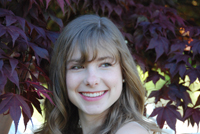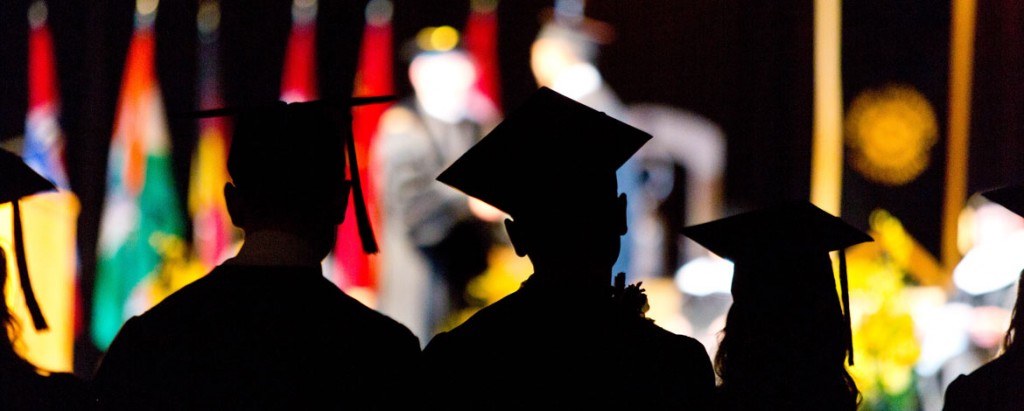Page 109 • (1,139 results in 0.063 seconds)
-

to go out and make the most of my one wild and precious life. Kelvin Adams – Bachelor of Science in physics, minor in mathematics Kelvin Adams ’12 is from Portland, Ore. Why PLU? I came to PLU because I wanted to be a Lute! The sense of community at PLU was head and shoulders above every other school I visited, and I wanted to be a part of this community. I was also drawn to the fact that at PLU you have access to professors who are truly invested in your education and who even show up to events
-
Professor at the Institute for Applied Research in Youth Development at Tufts University in Medford, Massachusetts Her research examines (1) psychosocial well-being among transnational and mixed-status migrant families from the Global South, and (2) critical consciousness development in diverse groups of adolescents and young adults. She uses community-based and participatory research methods in her work with youth, families, and communities. Prior to joining the faculty at UWT, Rachel was a Research
-
that there wasn’t a whole lot of making a difference, it was a whole lot of trying.” While he hesitates to say he hit the cliché midlife crisis, “I was at midlife and it was a crisis,” he said, chuckling. Eric Larsen (ELMSN)After a lot of research and exhausting career development resources, all signs pointed Larsen to nursing. So, he quit his Fish and Wildlife job in 2006, attended a local community college to complete the necessary prerequisites and applied to the entry-level master’s program
-
(particularly race/ethnicity, gender, and sexual orientation) as applied to individuals, families, groups, institutions, organizations, and communities locally and globally. Volunteer experience is required. (4) SOCW 250 : Social Policy I: History of Social Welfare - ES Exploration of power, privilege and oppression emphasizing political process and global social change in the development of the American welfare state and the profession of social work. Students reflect critically upon personal and social
-
environmental education as a component. In my paper, I argue that an approach to environmental education connected to religion, specifically children’s’ summer camp programming at camps connected to the Evangelical Lutheran Church in America (ELCA), is one type of environmental education likely to foster meaningful ecological awareness amongst participants, awareness that can be taken from the camp setting and applied to everyday life, leading to an increased passion for environmental work and advocacy. I
-
Empire, German Catholics defended Jewish rights not because of a particular affinity for the Jews of their era, but because they believed liberal democracy would respect Catholic rights if it were forced to respect all religious rights. During the years of the Weimar Republic, German Catholics all defend the rights of Jews because this defense applied to the rights of Catholics. More importantly, opposing the Nazis, German Catholics condemned racism as contrary to Catholic teaching, but did not
-
is not a science course, but rather a “big questions” course with scientific themes. It is not meant to be an introduction to any scientific field. It is meant to be a platform for thinking across disciplinary contexts, imagining alternative futures, using dialogue and reflection to re-evaluate the nature of the world we live in, and, perhaps, drive authentic change. In fact, as we work to design our starship, we will find that many of the lessons we learn can be directly applied on Earth. The
-
Disabilities and Applied Behavior Analysis from UW in 2009. She moved from the classroom into a specialist position in 2004 and coordinated the autism programs in Tacoma Public Schools for 7 years. She left in 2010 to join the University of Washington, Tacoma as a full time lecturer where she coordinated the Teacher Certification Program. She joined PLU in 2012 as an assistant professor. When she isn’t working, she is busy chasing after three children and working in the garden. Dr. Tucker works primarily
-

applied to, save for one,” Thames said. “I was initially thinking New York University’s Magazine Writing program, but then USC came along and offered to pay for school as well as provide living wages.” Despite her current success, Thames’ journey toward graduate school has been replete with challenges. With three demanding jobs and a rigorous course load, Thames had to learn strategies for time management and self-care. Although Netflix served as a favorite reprieve, it was the support of friends that
-
) – The Summer Program in Biostatistics & Computational Biology is an intensive 6-week program, where students will learn about biostatistics and epidemiology fundamentals, including statistical software packages. In addition to exploring these fields, they will also participate in a collaborative research project with Public Health faculty. Harvard School of Public Health (Massachusetts) – The Summer Program in Epidemiology introduces the use of mathematics and quantitative methods in public health
Do you have any feedback for us? If so, feel free to use our Feedback Form.


